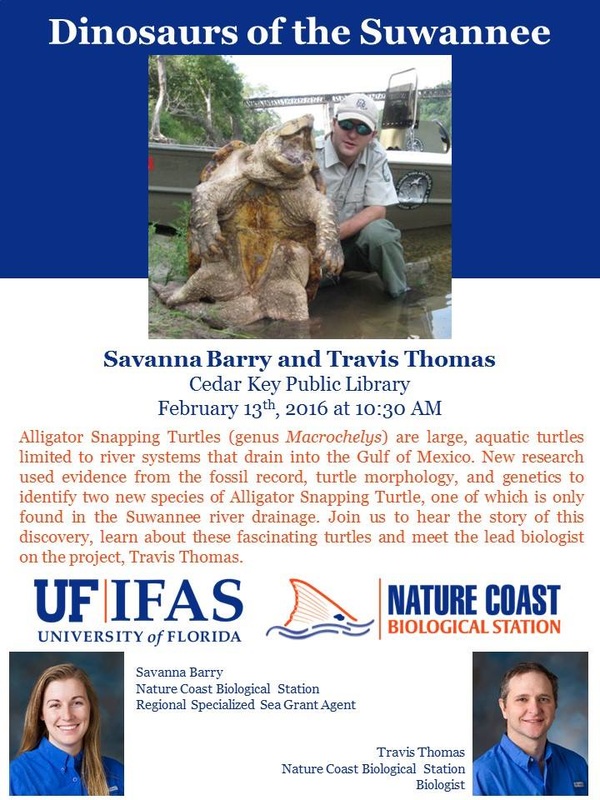|
Those with the good fortune to have attended last Saturday's presentation by the Nature Coast Biological Station at the Cedar Key Library got an outstanding introduction to the Suwannee alligator snapping turtle (Macrochelys suwanniensis), a local species that is new to science. These turtles were long thought to be members of a wide-ranging species that occurs across much of the southeast. But investigators noted that they shun salt water, come out on land only briefly to lay eggs, and probably have been isolated from their closest relatives for tens of millions of years. Biologists Savanna Barry and Travis Thomas summarized several lines of scientific evidence that clearly demonstrate that those in the Suwannee basin are members of a distinct species. Few people and few professional biologists have ever seen these secretive turtles in the wild, but they are abundant in the Suwannee and its tributaries, and are huge, weighing up to 250 pounds. Thomas and several collaborators also discovered another new species, the Apalachicola alligator snapping turtle that occurs on the western edge of Florida's Big Bend region. Thanks to the NCBS for reminding us of the unique biological treasures that surround us.
0 Comments
Leave a Reply. |
Archives
June 2024
|

Friends of the Lower Suwannee & Cedar Keys National Wildlife Refuges
P. O. Box 532 Cedar Key, FL 32625 [email protected] We are a 501(c)(3) nonprofit organization. |
|
